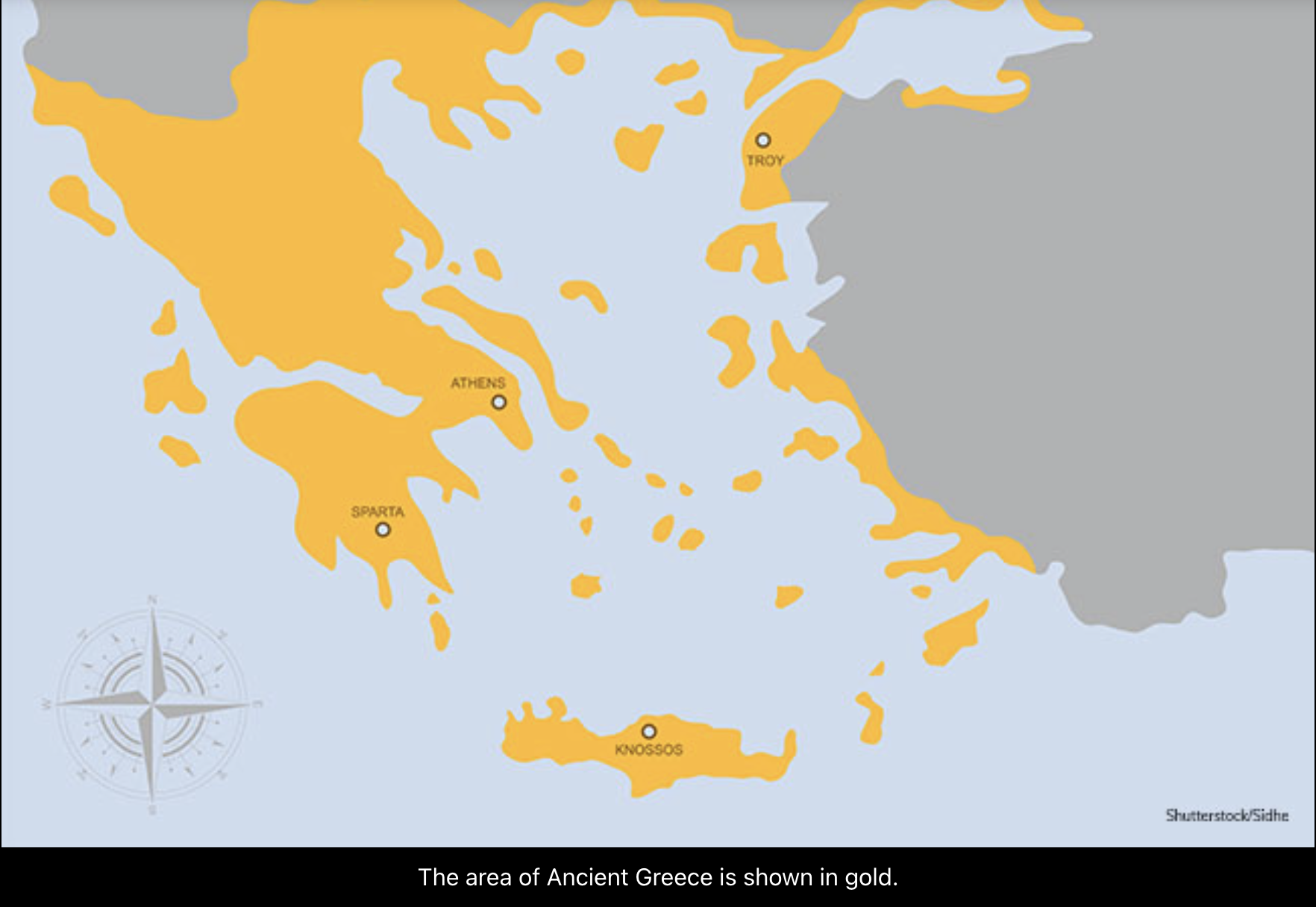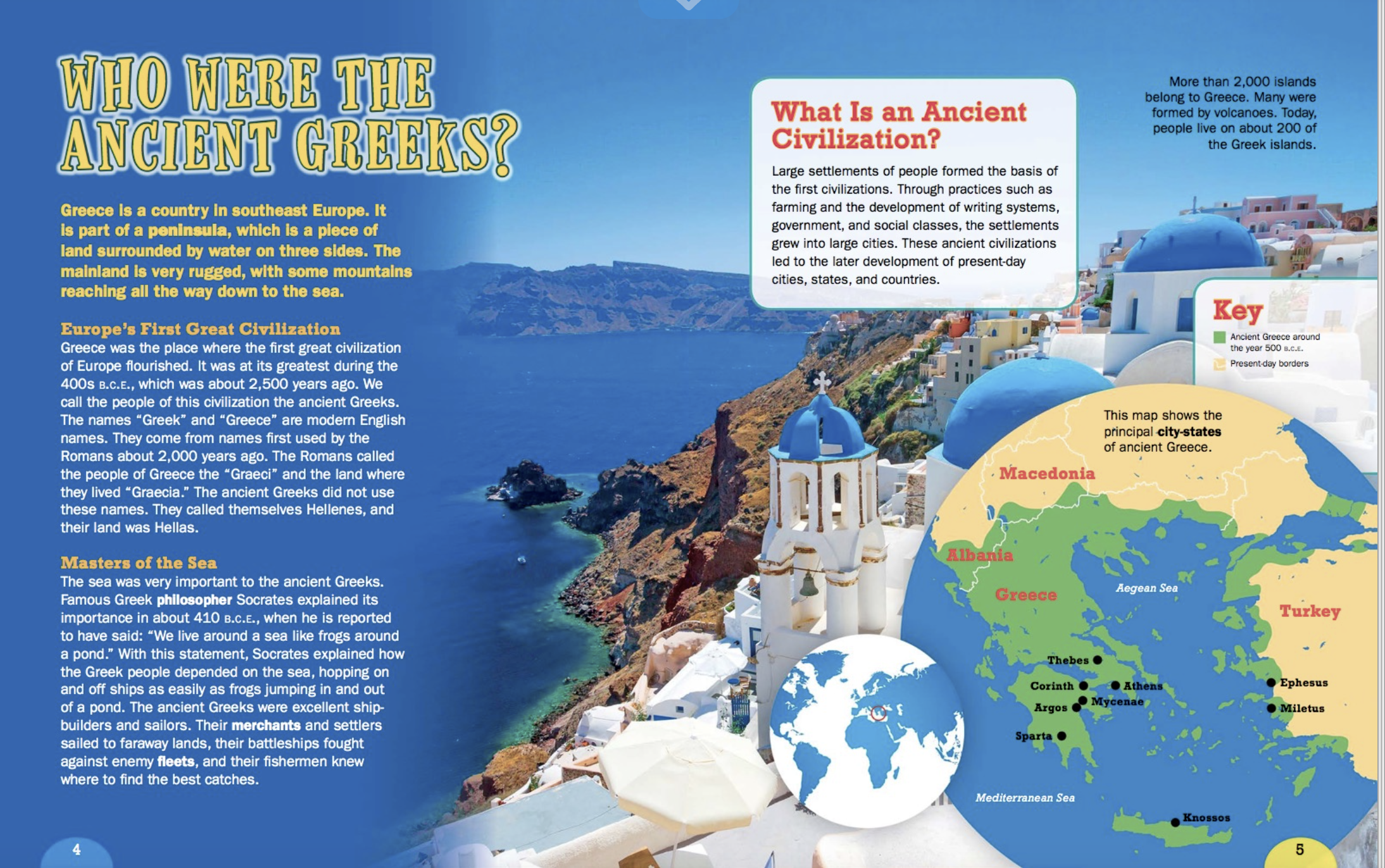What was Greek culture like?
-
The Greeks pretty much invented the theatre. Thousands of people packed the hillside arena of ancient Athens to watch plays by famous writers like Sophocles, Euripides and Aeschylus.
-
The Greeks also celebrated the arts with big festivals. There was always music, dancing and feasting in honour of their gods.
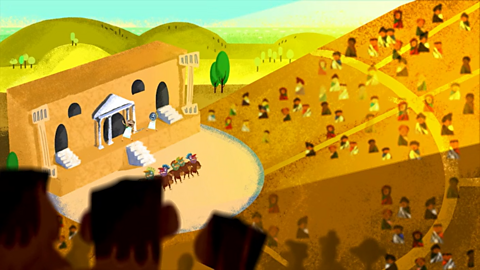
-
The Greeks' trademark red and black pottery was very fashionable, and it was bought and sold all over the Mediterranean and even parts of Asia.
-
They were great builders too. The Greeks built grand temples to their gods and superb sculptures of brave heroes.
Architecture and sculpture

Three different designs of ancient Greek columns.
-
The Greeks believed that the secret to making a great building was maths. They carefully designed and measured their buildings, making sure they got all their angles, shapes and sizes right.
-
Their temples were held up with stone columns and sometimes decorated with stone carvings of famous battles from Greek myths.
-
The Greeks were really good at making statues too. Sculptors carved lifelike marble statues and decorated them with brightly-coloured paints.
-
To make them even more spectacular, they added some gold, bronze and ivory jewellery - this would glint and sparkle in the sunlight.
What did ancient Greek pottery look like?
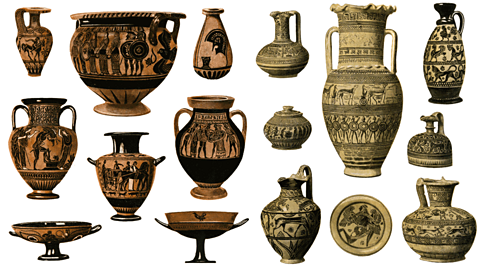
The Greeks were famous for their clay pots. Potters in the city states of Corinth and Athens made beautiful pottery. They used a watery clay mixture to make patterns on the clay before it was hard. Then the pot was baked in an oven called a kiln. The areas painted with the clay mixture turned black and the unpainted areas turned a reddish-brown.
Watch: Ancient Greek theatre
Find out about the topsy-turvy world of the ancient Greek theatre.
What happened at Greek festivals?

The lyre was a popular instrument at many festivals. A lyre is a bit like a small harp and musicians play it by strumming or plucking it. It was sometimes used to accompany singing or poetry readings.
-
The Greeks were always putting on big parties for their gods.
-
Athens was the place to go in ancient Greece for culture. Every four years, Athens held the Panathenaic Games.
-
Thousands of people paraded through the city to worship the god Athena. There were competitions for athletics, poetry reading and music. The Games ended with an enormous all-night banquet.
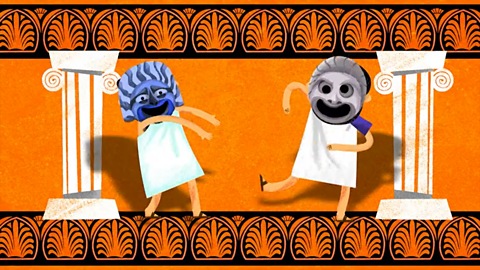
- Athens was the place to go for plays too. The city put on a drama festival called the Dionysia in honour of the god Dionysus. He was the god of the theatre and wine.
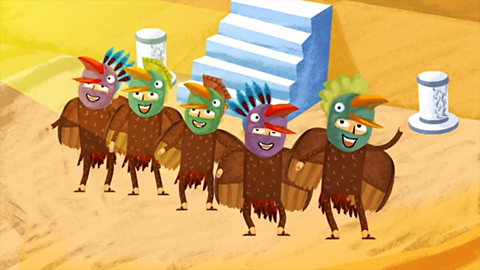
-
Judges gave prizes for their favourite tragedy and comedy performances.
-
The Pythian Games were held in Delphi for the god Apollo. They were a bit like the Olympic Games, but there were competitions for music, painting, acting and dancing, as well as athletics.

